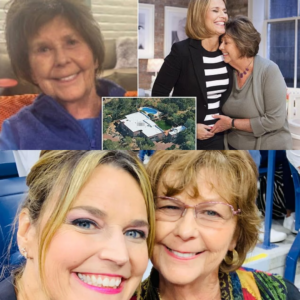Netflix has unveiled a stirring drama that pays tribute to the immense contributions of African-American women during World War Two.
The Six Triple Eight, featuring Kerry Washington, tells the story of the USA’s first and only Women’s Army Corps unit of colour, which was stationed in Europe during the war.
Known as the 6888th, this unit comprised 855 predominantly Black women who were assigned the daunting task of sorting through a three-year backlog of mail, as army officers feared that morale on the US front lines was dwindling due to servicemen not receiving news from home.
The formation of this unit came after civil rights activist Mary McLeod Bethune, portrayed by Oprah Winfrey, voiced concerns to the White House about the lack of meaningful democratic roles for Black women.
Her organisation, the National Council for Negro Women, played an instrumental role in securing pivotal roles for women of colour in the Women’s Army Corps. Washington plays Major Charity Adams, who made history as the first Black woman to command an overseas battalion for the US army.
Adams’ leadership skills truly shone when the unit travelled to the UK in February 1945 and were stationed at King Edward’s School, in Birmingham. They were given six months to sift through 17 million letters, many of which were addressed to nicknames or had been destroyed by rats, after languishing in warehouses for years.
Major Adams workforce diligently toiled in three eight-hour shifts, employing a meticulous filing system to complete their monumental task. Remarkably, they achieved their objective in a mere 90 days, outpacing their initial deadline by half, reports the Mirror.
Throughout their arduous endeavour, the thoughtful major ensured her team’s wellbeing by establishing a hospitable environment, complete with a refreshment bar and hair salon.

An incredible true story inspired the drama (Image: Perry Well Films 2 / Courtesy of Netflix)
Guided by their self-coined mantra, “No mail, low morale”, the battalion diligently fulfilled their obligation, demonstrating unwavering dedication. Their exceptional performance did not go unnoticed and soon, the Six Triple Eight was tasked with organising mail in France, first in Rouen and then in Paris.
Following her military service, Major Adams embarked on an educational career and in 1996, reflected on her tenure at the Smithsonian National Postal Museum stating: “When I talk to students they say, ‘How did it feel to know you were making history?’ But you don’t know you’re making history when it’s happening.
“I just wanted to do my job.”
Major Adams passed away in 2002 at 83 years old. Her legendary battalion was posthumously recognised with the unveiling of a commemorative monument in 2018 at the Buffalo Soldier Military Park in Kansas.
Moreover, Adams continued to blaze trails even in death, as she became the first African American woman in U.S. history to have an army fort bestowed with her name – Fort Gregg-Adams in Virginia – a perpetual testament to her remarkable achievements.





